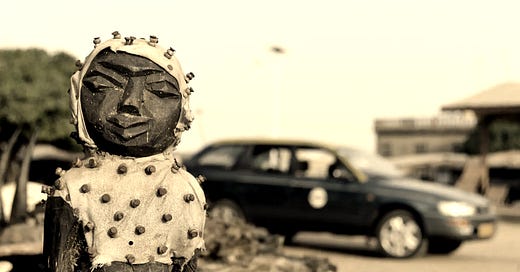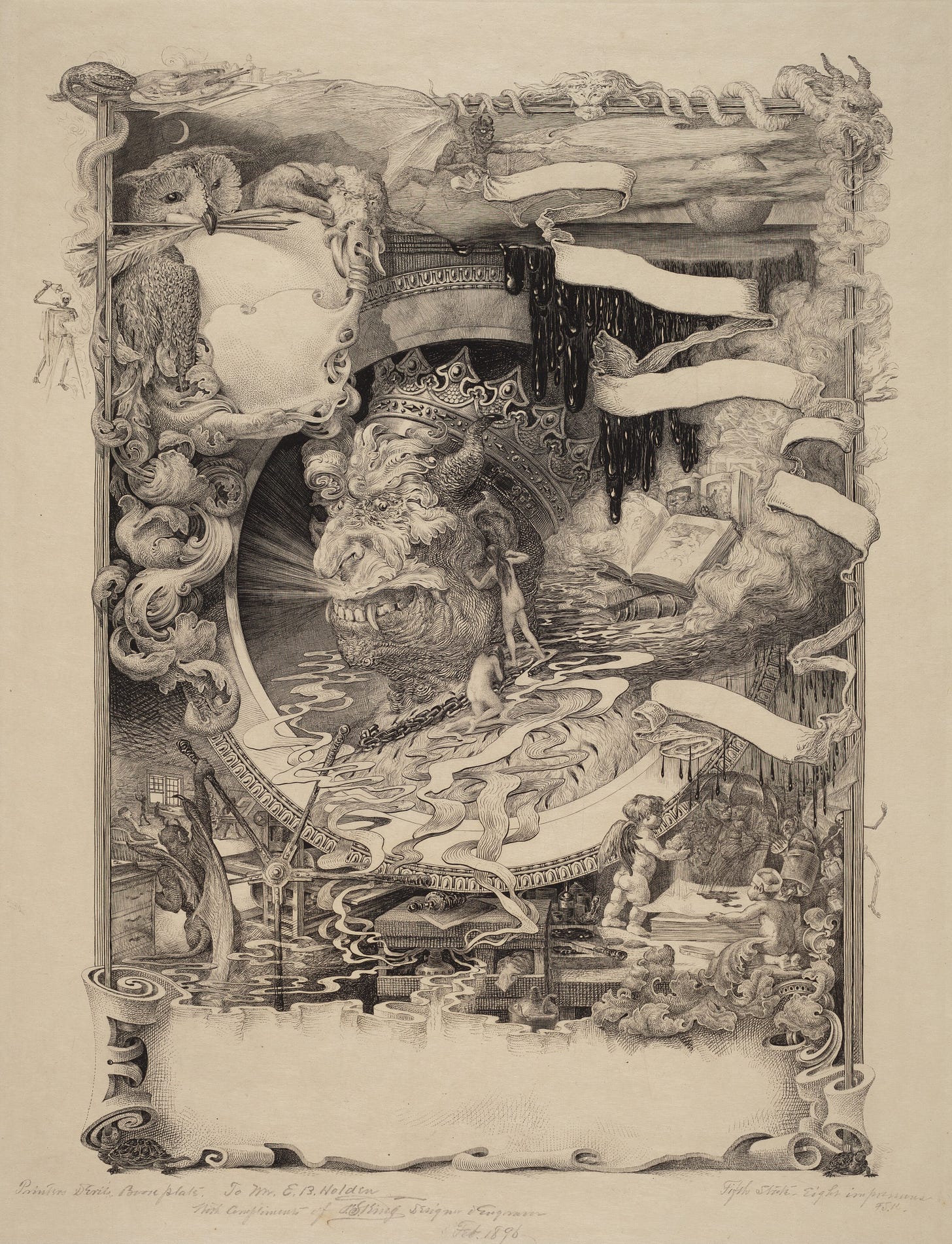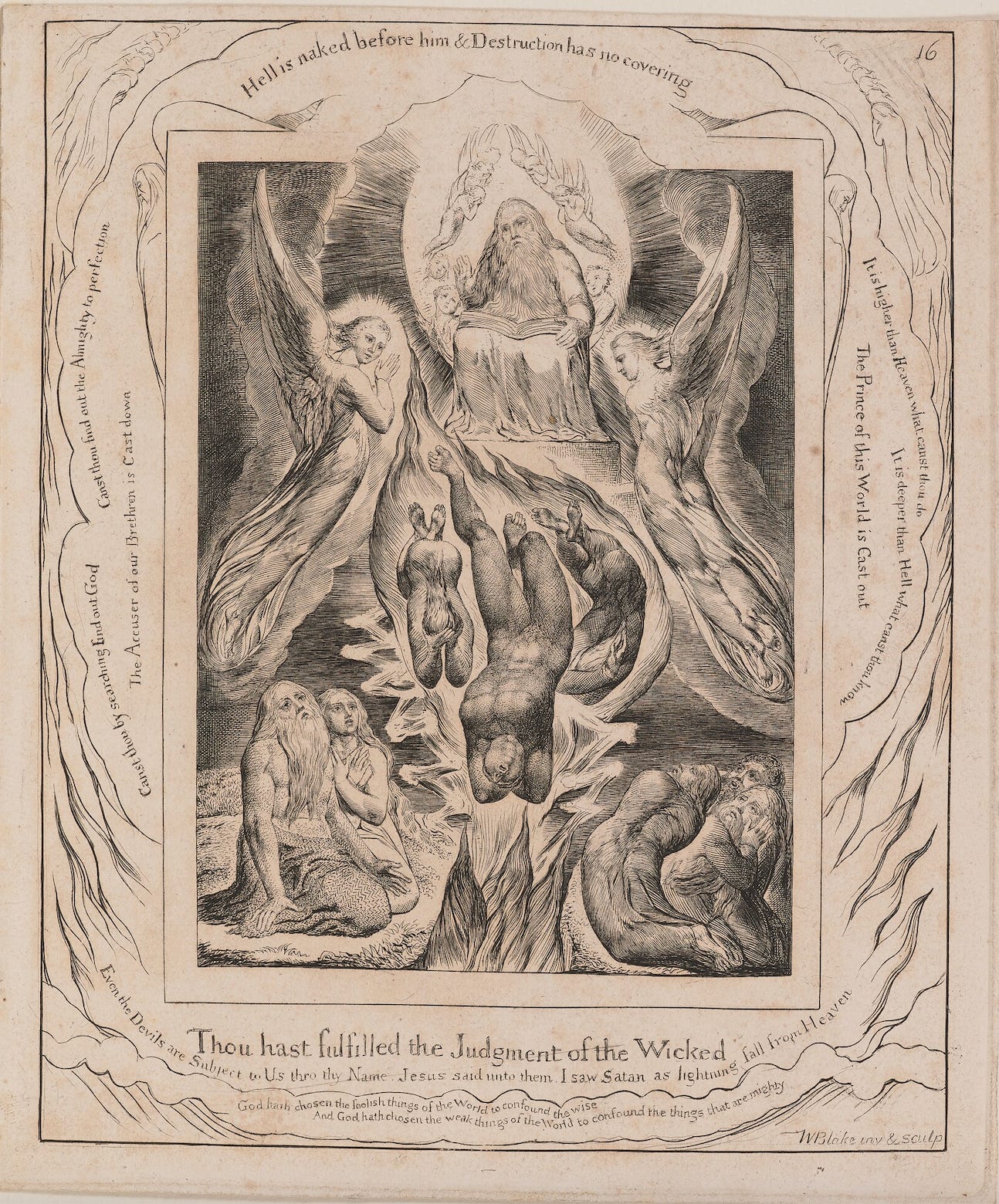When I was a kid in Burkina Faso, we lived for a short time in the second largest city in the country, Bobo-Dioulasso. Unlike most places in West Africa, there were still some colonial-era buildings standing, and some of the streets were lined with towering leafy trees the French had planted. In the post-colonial era the Lebanese had moved in to start hardware and grocery stores, and to establish high-end-ish hotels.
Mixed in with all of this was evidence of old-time African religion. I’d sometimes see men walking the streets in the nude, covered in dirt, and out of their minds. It was well understood that these men weren’t victims of an all but non-existent mental health system. Nor had they lost their faculties from drug abuse. These men were demonized, and seeing them struck fear into my little heart.
The basic building blocks of newbie Christian discipleship have traditionally fallen into three basic categories: beliefs, prayer, and morality. The Apostles’ and Nicene creeds are the foundation of belief (and, for the record, are astoundingly helpful summaries of the Bible). Prayer is taught through the Our Father. And morality through the Ten Commandments.
One of the things the nascent Christian will soon realize is that to follow Jesus is inevitably to face the oppression of the devil. The Ten Commandments warn that we are not to worship other gods. The Ten assume there are other gods, and we identify those other gods as the devil and his legion of demons. The Lord’s Prayer invites us to ask that God would deliver us from evil. And the creed confesses that Christ, who is Light from Light, defeated the darkness of death by his resurrection. All of these elements point to the cosmic battle between Jesus and the Beast.
New Christians will also learn that the oppression of the devil will be experienced on a personal level. Paul wanted the earliest Christians to understand this, which is why he counsels them to take up the armor of God, narrating one piece of armor at a time that he promises will enable Christians to stand against the devil’s schemes (Ephesians 6).
A little over a week ago, I preached on Luke’s account of the Gerasene demoniac (Luke 8:26-39). Like the men I saw Bobo-Dioulasso, his demons had driven him to nakedness. The story tells us that the demonized man runs at Jesus screaming, but is submissive. He knows who Jesus is (v. 28). We’re also told that so incredible was his supernatural strength that the man could break through chains the community used to try to bind him. And all of this takes place on the edge of a grave yard which the man called home.
What a terrifying encounter. But—it is worth noting—he was more terrified of Jesus than anyone was of him. The demons inside of him beg Jesus not to cast them into the abyss (v. 31).
What the devil does is objectively scary. A naked man running at you from a grave yard is the stuff of modern zombie horror flicks. In the western world, we don’t see this kind of stuff as a matter of routine like I did in my childhood. Our secularized society has medicalized away demon possession and demonic oppression—no matter how little modern medicine can explain what’s happening.
The work of demons has receded into the invisible. But, as many modern philosophers have pointed out, invisible power is often more effective than visible power. We know this intuitively as we reckon with our burgeoning age of Artificial Intelligence. We can’t see it like we might be able to see the gestapo patrolling the streets, which is in part what makes it so scary.
The devil’s invisible work requires discernment. And the story of the graveyard demoniac suggests that fear is one of the best ways to sniff out the work of the enemy. Whenever we feel terror, there is the devil. He’s objectively scary. But like we teach our children about snakes, Satan is more afraid of Jesus than we are of him.
Perhaps we need to lean into Satan’s own fear, making a doxological ruckus to send him slithering back to the abyss from which he came.








I am always so encouraged to read your deeply Pentecostal writings as a theologian. Thanks for blessing us.
I appreciated your thoughts on this topic. I believe this is one of the often forgotten aspects of the spiritual realm in Western Christianity. However, having encountered the demonic in person, it definitely opens your eyes to what is out there.